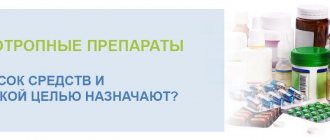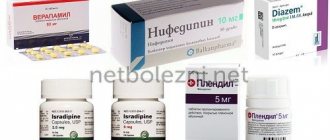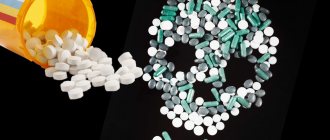What to drink to improve memory.
October 7, 2022
8415
5
2
Content
- Why does memory deteriorate?
- What medications negatively affect memory?
- Groups of drugs to improve memory
- Top 6 drugs to improve memory
- Bilobil Forte
- Sermion
- Fezam
- Memoplant
- Vasobral
- Tanakan
There are many reasons for memory impairment. To select one or another drug to improve memory, you need to undergo an examination - self-medication is strictly prohibited here.
Memory is given to a person in order, in simple words, to “record” data. If there are no problems, then at any moment the brain can reproduce the accumulated information. But if there is some kind of “breakdown”, the process of memorization and reproduction is disrupted.
Why does memory deteriorate?
- Exhaustion of the body due to prolonged stress, depression or lack of sleep.
- Lack of B vitamins.
- Atherosclerosis and cerebral circulatory disorders.
- Use of drugs or alcohol.
- General anesthesia or taking certain medications.
- Traumatic brain injury, surgical treatment of the temporal lobes of the brain.
- Dementia, Alzheimer's, Parkinson's, etc.
- Psychiatric diagnoses.
- Encephalitis or meningitis.
- Benign or malignant brain tumors.
Taking vitamins in old age
In the body of older people, there is often a lack of vitamins involved in metabolic processes. Therefore, when memory problems are detected, doctors recommend taking vitamin complexes with herbal supplements (for example, ginseng), since they have a nootropic effect. It is especially important for older people to drink vitamins A and B and ascorbic acid. But old people often simply forget to drink the medicine due to memory problems. Therefore, it is better to choose a complex that combines daily doses of all the necessary vitamins and supplements that improve the nutrition of brain cells and their functioning.
What brain medications can a doctor prescribe for older people? Pensioners are often prescribed medications containing glycine, an amino acid involved in the metabolic processes of various organs of the body. Indications for the use of medicine for cerebral vessels for elderly people are memory impairment, detection of atherosclerotic changes in blood vessels and amnesia.
Thanks to the tablets, metabolic processes are normalized, as a result, performance and brain activity increase, sleep is normalized, and anxiety states disappear. The advantage of such drugs is a small number of side effects. This is due to the fact that glycine is a natural substance for the body. It is extremely rare that an elderly person may develop an allergy to the drug or an individual intolerance to it. In some cases, we are talking only about mild drowsiness at first.
We recommend
“How to care for a bedridden elderly person” Read more
What medications negatively affect memory?
Side effects of some drugs include memory impairment. But this “side effect” does not develop in everyone, but is an individual reaction of the body to the main active substance. These medications include:
- Antihistamines (used to treat allergies).
Typically these are first-generation allergy medications that suppress the central nervous system. The person feels drowsy and his vision becomes blurred. For example, allergy medications such as Diphenhydramine, Suprastin, and Tavegil have a similar effect. These drugs negatively affect the centers of the brain responsible for memory and learning. It has been proven that long-term use of such drugs can cause the development of dementia in old age. Therefore, it is better to choose new generation antihistamines (“Loratadine”, “Cetirizine”, etc.). - Medicines for angina and hypertension.
Similar drugs, which are prescribed for high blood pressure and pulse, act on adrenaline and norepinephrine (Anaprilin, Atenolol, Bisoprolol, Carvedilol, etc.). They slow down the pulse, but at the same time inhibit the functioning of the central nervous system - a person feels general weakness, fatigue and memory problems. Among the new generation of drugs are those that act only on the heart, practically without affecting the nervous system. Discuss with your cardiologist the possibility of taking selective adrenergic blockers such as Betaxolol, Nebivolol, etc. - Anticonvulsants.
Such drugs are prescribed mainly for epilepsy. The active substance of such drugs, valproic acid, reduces signals entering the central nervous system. Usually a person feels weak in his muscles and finds it difficult to concentrate. Due to the slowdown of the brain, its functions decrease, including memory. Among the new drugs for epilepsy with reduced toxicity is Lamotrigine. - Sleeping pills and sedatives.
Such drugs reduce brain function in its main parts, help you sleep and reduce stress (memory also suffers). Many of us know a drug called Corvalol (it is sold without a prescription, so we think it is safe). In fact, this product contains a serious substance called phenobarbital, which, when used regularly, accumulates in the body and poses a health threat. For anxiety disorders and seizures, doctors often prescribe benzodiazepines. But they are usually used for short periods of time to avoid negative effects on memory. - Antibiotics.
The gastrointestinal tract contains hormones and substances necessary for the brain. Antibiotics destroy not only harmful bacteria, but also beneficial components. If you take a standard course of antibiotics as prescribed by your doctor, there will be no negative effect on your memory. But if you overuse self-medication or are forced to take antibiotics for a long time, you may have memory problems.
What nootropics (list of drugs and their characteristics) are widely used in pediatrics?
First of all, I would like to remind you that nootropics in pediatrics have fairly clear indications for use. These are, first of all, the following conditions: • Prevention and treatment of child retardation in mental, motor and speech (after 3 years) development. • Stimulation of central nervous system functions associated with the processes of learning, concentration, memorization and reproduction of information. • Organic damage to the central nervous system as a result of neuroinfections, traumatic brain injuries, genetic diseases. • Cerebral palsy. • Urinary disorders of neurogenic nature. • Stuttering. • Complex therapy of epilepsy. • Neurotic conditions and asthenia (obsessive-compulsive disorder) • ADHD – attention deficit hyperactivity disorder. Most often, children are prescribed nootropics from the list of so-called true nootropics, which primarily affect the mnestic (memory) and cognitive (cognitive) abilities of a person of any age. These are nootropic drugs such as: • Racetams. • Neuropeptides. • Cholinergic nootropics. • Neuroprotectors. • Activators of amino acids and GABA (gamma-aminobutyric acid). • Antioxidants. Of the Racetams, the most significant and widespread is Piracetam - a drug used by doctors for almost 50 years and being the founder of nootropic drugs, the list of which is constantly expanding and updated. Known under the commercial name nootropil. In children, it is especially effective as a stimulator of speech development, and also helps well with cerebral palsy and mental retardation, during rehabilitation after TBI and GM intoxication, and helps increase learning ability. Available in a wide variety of pharmacological forms - tablets, granules, capsules, syrups, solutions for parenteral administration. Peculiarities of use: not recommended for use in the afternoon.
In childhood, drugs such as: • Cortexin, which is considered the best for children 1 year of life, are also often prescribed. It can be used starting from the first birthday. It has a positive effect on the nervous system, including the peripheral one, counteracts toxic effects, improves blood circulation, and is used in the complex treatment of epilepsy. In addition, cortexin improves memory, increases resistance to stress and is effective when taken by children with developmental delays (psychomotor and speech). Quite popular among students, especially during sessions, to improve memory and assimilate large amounts of information. Cortexin also has positive reviews from parents and pediatricians; it is quite safe, but quite expensive. Available in the form of a lyophilisate (powder dried at sub-zero temperatures). • Semax 0.1% solution is the safest and is produced in the form of nasal drops convenient for use in children. It has virtually no side effects, except for rare and minor irritation of the mucous membrane. It belongs to the peptide series of nootropics and has a positive effect on attention, learning and perception. In addition, it helps restore and adapt the nervous system after anesthesia. In pediatrics, it has proven itself well in the treatment of brain dysfunction in children over 5 years of age. The advantages of Semax include high safety and a convenient release form for use. A relative disadvantage is the need to store the drug in the refrigerator at a temperature not exceeding 8 degrees.
• Cerebrolysin, which is a neuropeptide of animal origin (a concentrate of peptides from the brain of pigs or cattle. It is actively used as an activator of neural metabolism, helps to increase concentration and reduce hyperactivity. Its disadvantage is that it is a relatively expensive drug and is produced only in in the form of injection solutions, and the plus is that this is one of the most effective nootropics for developmental delays in children.Side effects are rare and boil down to individual allergic reactions to the components of the drug, insomnia and, extremely rarely, arrhythmias.
For delayed speech development (DSD), the following nootropics are also effective: • GABA analogues and derivatives (Picamilon, Pantogam), which normalize the conduction of nerve impulses and improve glucose utilization and oxygen consumption in neurons. Being inhibitory mediators, they are effective for hyperactivity and increased excitability of the central nervous system. • Pyritinol drugs (Encephabol, Cerebol), which have a neuroprotective (stabilization of membranes and inhibition of the production of free radicals that destroy the structure of cells) and antihypoxic effects. • Ceraxon is a stimulant of central nervous system activity, containing citicoline, which is responsible for restoring neuronal membranes and their energy supply, as well as reducing the amount of intercellular fluid in the brain and thus providing an anti-edematous effect. It is recommended not only for mental retardation with symptoms of inhibition, but also for autism. To summarize the answer to this question, I would like to say that the choice of nootropic drugs, the list of which, taking into account the new generation drugs, includes more than a hundred items, remains with the pediatrician. Under no circumstances should you prescribe nootropics on your own, even based on the indications indicated in the instructions. Of course, nootropics are quite safe drugs that have a positive effect on the nervous system, but each of them has its own preferential effect and is aimed at different processes in the nervous tissue. By independently prescribing CNS activators to a small patient with hyperactivity, parents can get increased activity and increased excitability in their child, leading him to a nervous breakdown and treatment by a child psychiatrist. To prevent such excesses, the vast majority of nootropics are sold in pharmacies only with a doctor’s prescription. Some of them can be purchased without a prescription, but their list is quite limited. I will dwell on them in more detail at the end of the interview.
Groups of drugs to improve memory
Memory impairment occurs due to impaired cerebral circulation. Typically, able-bodied people who engage in mental work notice this problem. This symptom cannot be ignored, because it often indicates organic brain diseases.
There are three main groups of drugs to improve memory:
- Psychostimulants-adaptogens.
Usually these are products of natural origin that stimulate mental and physical activity. - Nootropics.
These drugs activate learning processes, improving the brain's resistance to negative influences. - Energy metabolism correctors.
Such natural-based drugs act gradually and improve brain function.
Top 6 drugs to improve memory
Our rating includes the most popular and proven effective drugs, which are most often prescribed by neurologists for memory impairment. It is important to remember that such medications should only be recommended by a doctor, having determined the cause of the problem and taking into account possible contraindications and side effects.
Causes of memory impairment
Photos from open sources
Hypnotics (non-benzodiazepine hypnotics and sedatives)
Representatives : eszopiclone (Lunesta), zaleplon (Sonata) and zolpidem (Ambien).
These medications help you fall asleep. But, just like the aforementioned sedatives, they can disrupt the connection between short-term and long-term memory.
“There are alternative medications and non-drug treatments for insomnia. Talk to your doctor about them. For example, melatonin at night in a dose of 3 to 10 mg helps restore healthy sleep. However, remember that abruptly stopping sleeping pills can cause side effects, so any changes in treatment should be made by your doctor,” says Dr. Neal.
Always consult your doctor before making any changes to your drug therapy.
Bilobil Forte
Antihypoxic drug from ginkgo leaf extract. "Bilobil Forte" is prescribed for cerebrovascular accidents. This is an excellent remedy for memory problems, ringing in the ears and dizziness. "Bilobil Forte" improves metabolic processes in brain cells, improves blood circulation, dilates and strengthens blood vessels, and serves as a prevention of thrombosis. The memory drug nourishes the brain not only with oxygen, but also with glucose, relieves swelling and reduces the number of free radicals in cells.
Bilobil Forte
KRKA (KRKA), Slovenia
The drug Bilobil Forte is a drug used for dementia.
Improves cerebral circulation and supplies the brain with oxygen and glucose, prevents red blood cell aggregation, and inhibits platelet activating factor. It exhibits a dose-dependent regulatory effect on the vascular system, stimulates the production of endothelium laxative factor (nitric oxide-NO), dilates small arteries, increases the tone of the veins, thereby regulating the blood supply of blood vessels. Reduces the permeability of the vascular wall (anti-edematous effect both at the level of the brain and at periphery). from 152
5.0 1 review
613
- Like
- Write a review
Memory problems and prerequisites for their development
The aging process is invariably associated with memory decline. This is understandable: gradually, naturally, nerve brain cells die. Such changes begin to manifest themselves at the age of 50+, reaching a peak at 70–75 years. First of all, short-term memory suffers: an elderly person does not remember where he put his money or keys, has difficulty navigating dates or events, and may forget about visiting a doctor or taking pills. In this condition, help is required, it is necessary to take medications to improve brain function and restore normal life.
A clear memory significantly makes the life of older people easier, helps them feel more confident, independent, and not depend on the constant supervision and care of loved ones.
Pensioners' memory can deteriorate for various reasons:
- The condition of the hippocampus (the area of the brain responsible for memories) worsens.
- The level of proteins and hormones in the body, which protect brain cells and stimulate the formation of neural connections, decreases.
- Blood flow to the brain decreases, which does not have the best effect on a person’s memory and other cognitive skills.
A timely visit to a doctor by an elderly person will help to understand what exactly the existing problems are related to: ordinary forgetfulness or an incipient disease.
Recommended articles on this topic:
- Boarding home for the elderly: features and rules of choice
- Low blood pressure in older people: causes, symptoms and treatment
- Health of the elderly: old age is not a problem
Today in pharmacies you can find a huge number of tablets to improve memory, but you can take them only as prescribed by your doctor. It should also be noted that the opinions of doctors and scientists regarding the effectiveness of these drugs for the brain of older people vary. As a result of numerous experiments, only certain effective properties of the drugs are confirmed (and even those are not fully). In addition, a number of medications in large doses can lead to unpleasant side effects.
Sermion
An adrenoblocker and antihypoxant, which contains nicergoline, which is capable of restoring neurons. Sermion improves cerebral circulation, stimulates metabolic processes and microcirculation in the blood vessels of the brain. The medicine has a positive effect on cognitive function and improves memory. With long-term use of Sermion, there is a significant improvement in mental activity, and the development of dementia is inhibited as much as possible.
Sermion
Pfizer (Pfizer), USA
Sermion improves metabolic and hemodynamic processes in the brain, reduces platelet aggregation and improves hemorheological blood parameters, increases the speed of blood flow in the upper and lower extremities.
from 324
1225
- Like
- Write a review
Publications by our doctors on the topic “How to overcome post-Covid syndrome”
- Lung recovery after coronavirus
- Restoring the sense of smell after coronavirus
- Overcoming mental disorders during post-Covid syndrome
- We are experiencing COVID. How the coronavirus pandemic affects mental functioning
- Post-Covid screening - examination after a new coronavirus infection
- How to return digestion to normal after coronavirus?
- Loss of smell due to COVID-19 - advice from an otolaryngologist
- Recommendations from a cardiologist after suffering from COVID-19
- Coronavirus turned out to be “vindictive” - what is important to know
- Post-Covid syndrome: program for diagnosis and regression of post-Covid symptoms. How to Manage Long-Term Long COVID Symptoms
Fezam
A nootropic drug, a psychostimulant, which contains two active ingredients: piracetam and cinnarizine. Phezam improves memory and attention, stimulates neural connections, dilates blood vessels, and protects brain cells from oxygen starvation. Cinnarizine improves cerebral circulation, relieves vascular spasm, thins the blood, without affecting blood pressure. Piracetam improves cognitive abilities, improves metabolic processes in the ischemic zone, and regulates connections between the hemispheres of the brain. Phezam is prescribed for neuroses and exhaustion of the nervous system; the drug stimulates mental, emotional and physical activity.
Fezam
ZiO-Zdorovye, Russia
- cerebrovascular insufficiency (cerebral atherosclerosis, recovery period of ischemic and hemorrhagic strokes, after traumatic brain injury, encephalopathy of various origins);
- intoxication; - diseases of the central nervous system, accompanied by a decrease in intellectual and mental functions (impaired memory, attention, mood); — conditions after a traumatic brain injury; — psychoorganic syndrome with a predominance of symptoms of asthenia and adynamia; — asthenic syndrome of psychogenic origin; - labyrinthopathy (dizziness, tinnitus, nausea, vomiting, nystagmus); - Meniere's syndrome; - prevention of kinetosis; - migraine prevention; — as part of complex therapy for low learning ability in children with psychoorganic syndrome. from 262
802
- Like
- Write a review
Is there insurance against memory impairment? How can I reduce the risk?
It is necessary to consult a general practitioner as soon as you feel unwell. If you have not done so, make an appointment after recovery, even if you feel well. But it is especially important to consult a doctor if you have the following symptoms after suffering from coronavirus: depression, apathy, sweating, weakness, fatigue, shortness of breath, tachycardia, frequent urination or urinary retention, heaviness in the right side.
Comment by the chief physician of the Family Doctor clinic, A. A. Azarov:
“At the moment, most of the pathological manifestations of the new coronavirus infection, not to mention the long-term consequences, are under study. If memory impairment after suffering from the new coronavirus infection Covid-19 worsens the quality of life, we recommend contacting specialized specialists for a face-to-face consultation: a neurologist, a psychiatrist to assess the state of memory, select adequate therapy if necessary, as well as dynamic monitoring.”
Memoplant
Angioprotector, the active substance of which is an extract from ginkgo leaves. "Memoplant" is prescribed for cerebral circulatory disorders accompanied by memory impairment, dizziness, ringing in the ears, and problems with cognitive abilities. The drug improves metabolic processes in cells, strengthens blood vessels, thins the blood and reduces the risk of thrombosis, nourishes the brain with oxygen and glucose, and reduces the number of free radicals. Memoplant is often prescribed to older people, since ginkgo-based preparations are considered very effective and safe. The only point: Memoplant cannot be taken in parallel with aspirin (and drugs based on it), since the risk of bleeding increases.
Memoplant
Dr. Willmar Schwabe, Germany
- disorders of brain function, incl.
age-related, associated with cerebrovascular accident and accompanied by the following symptoms: memory impairment, decreased ability to concentrate and intellectual abilities, dizziness, tinnitus, headache; - peripheral circulatory disorders (obliterating diseases of the arteries of the lower extremities with such characteristic symptoms as intermittent claudication, numbness and coldness of the feet, Raynaud's disease); - dysfunction of the inner ear, manifested by dizziness, unsteady gait and tinnitus. from 437
557
- Like
- Write a review
Cases from practice
- Patient N, 35 years old. After suffering from Covid-19, memory deteriorated significantly, sleep deteriorated, and anxiety and irritability appeared. Drug therapy was selected, recommendations were given on compliance with the work and rest regime. After 1 month, the patient's condition improved significantly.
- Patient K, 47 years old. After suffering from a mild form of Covid-19, I noticed a sharp deterioration in memory, apathy and irritability appeared. The patient was given recommendations on sleep patterns and prescribed drug therapy. Two weeks later, he noted an improvement in his condition and continued taking medications.
If you have problems with remembering, contact a general practitioner or neurologist at the Family Doctor clinic - make an appointment by calling the single contact center +7 (495) 775 75 66, use the online appointment service or contact the reception clinics. The doctor will identify the cause of the disorder and prescribe the necessary treatment. The professional attention of our clinic specialists will help restore your memory and restore your usual quality of life.
Vasobral
This memory improving drug contains caffeine and α-dihydroergocriptine. “Vasobral” stimulates tissues to be resistant to lack of oxygen and blocks adrenaline receptors. The drug improves vascular function, has a diuretic effect, relieves excess drowsiness, and improves performance. Patients who took Vasobral note that this drug is well tolerated and really stimulates memory, mental activity and attention. Doctors say that a long course of treatment is required to achieve maximum effect.
Vasobral
Chiesi, France
A nootropic drug that is used for: Decreased mental activity, impaired attention and memory, impaired spatial orientation caused by age-related changes;
- cerebrovascular insufficiency (including due to cerebral atherosclerosis); - consequences of cerebrovascular accident; - migraine prevention; - vestibular and labyrinthine disorders (dizziness, tinnitus, hypoacusia) of ischemic origin; - Meniere's disease; - retinopathy (diabetic and hypertensive); - peripheral arterial circulation disorders (Raynaud's syndrome and disease); - venous insufficiency. from 879
5.0 3 reviews
1388
- Like
- Write a review
Glycine
Glycine is the simplest amino acid with the structure NH2‑CH2‑COOH. In addition to the fact that glycine is part of proteins, this molecule functions as an inhibitory neurotransmitter in the central nervous system. The regulatory effect of glycine on the activity of glutamate NMDA receptors, GABAergic, alpha-adrenergic blocking, antioxidant and antitoxic effects, as well as the ability to inhibit spinal cord motor neurons are described. In this regard, the manufacturer describes such effects as:
- reduction of psycho-emotional stress and conflict;
- improved mood;
- normalization of sleep;
- increased mental performance;
- improvement of social adaptation.
It is stated that glycine reduces the severity of vegetative-vascular disorders, reduces the toxic effect of ethanol and a number of drugs on the central nervous system, and can reduce the severity of cerebral disorders and reduce increased muscle tone.
In this regard, a number of indications are indicated for glycine (see Table 3). According to the instructions for use, this nootropic is prescribed for use by hyperactive children, children with “vegetative dystonia,” and is included in “metabolic therapy” protocols for patients with connective tissue dysplasia and patients with acute ischemic stroke. Very often, patients themselves decide to “drink glycine” to improve memory or to cope with stress. You will be surprised to learn the indications for taking glycine that evidence-based medicine offers. So, according to the Cochrane Library, taking glycine:
- may partially improve the symptoms of schizophrenia when added to basic therapy;
- may have a positive effect in ischemic stroke, but this assumption requires confirmation;
- in combination with other amino acids, applied topically, can improve the healing of trophic ulcers in type 2 diabetes mellitus;
- cannot be used as a drug to improve memory, protect the liver, prevent cancer and other conditions.
The US Food and Drug Administration (FDA) has approved glycine as a 1.5% solution for urological irrigation during transurethral surgery.
Tanakan
Another adaptogen and antihypoxant based on ginkgo biloba. "Tanakan" copes well with the main task - improving memory and performance. In addition, the medicine helps improve sleep, improve blood circulation in the brain, and reduce the number of headaches and dizziness. Tanakan is perfect for older people because it has a completely natural composition.
Tanakan
IPSEN (Bofur Ipsen), Ukraine
Tanakan is a herbal preparation, the effect of which is due to the ability of the active substance to influence metabolic processes in cells, improve the rheological properties of blood and microcirculation (blood movement in the smallest vessels of the body).
Used for: discirculatory encephalopathies of various origins (post-stroke, consequences of traumatic brain injury, senile), manifested by impaired attention and memory, sleep disturbance, decreased intellectual abilities of a person; neurosensory disorders (due to diabetic retino- or polyneuropathy, dizziness, hypoacusis, tinnitus); disruption of normal peripheral circulation, including as a result of Raynaud's disease; asthenic conditions, i.e. conditions characterized by signs of general exhaustion of the body due to psychogenic, neurotic, traumatic processes. from 485
1168
- Like
- Write a review
Range
Most nootropic drugs are available with a prescription. However, some drugs from the list of nootropics are available without a prescription. Depending on the chemical structure and properties, the following groups of OTC drugs are distinguished:
Table 1. Groups of drugs with nootropic activity (drugs approved for over-the-counter release are indicated)
| Group of drugs | INN | Trade name |
| Pyridoxine derivatives | Pyridoxine + threonine | Biotredin |
| Cerebrovascular agents | Ginkgo biloba leaf extract (registered as an angioprotective agent) | Ginkum, Ginkgo biloba, Bilobil, Tanakan, Ginos |
| Amino acids and substances affecting the excitatory amino acid system | Glycine (registered as a metabolic agent) | Glycine Canon, Glycine Ozone, Glycine forte Pharmaplant, Glycine forte, Glycine, Glycine-bio Pharmaplant, Glycine-bio, Glycine-MHFP |
| N-phenylacetyl-L-propylglycine ethyl ester | Noopept | |
| Threonine+pyridoxine | Biotredin | |
| Substances of other pharmacological groups with nootropic effects | ||
| General tonics and adaptogens | Ginseng real roots extract | Herbion ginseng |
| Melatonin | Kakspal Neo, Melaxen balance, Melarena, Melarithm, Melatonin-SZ, Sonnovan | |
| Other drugs | Glutamic acid, | Glutamic acid, |
| Levocarnitine (registered as a metabolic agent) | L-Carnitine Rompharm, Elcar, Levocarnil, Nephrocarnit, Carnitene | |
In addition, there are combination drugs that include nootropics from different groups or nootropics in combination with drugs from other categories.
Table 2. Combined drugs containing components with nootropic activity (drugs approved for over-the-counter release are indicated)
| Combination type | Compound | Tradename |
| Combinations of nootropic drugs with drugs from other groups | Glycine + glutamic acid + cystine (antioxidant) | Eltacin |
| Ginkgo biloba leaves extract + heptaminol + troxerutin (angioprotective agent) | Ginkor fort |
Let's talk about the action of these nootropics (brief descriptions are given in Table 3).






